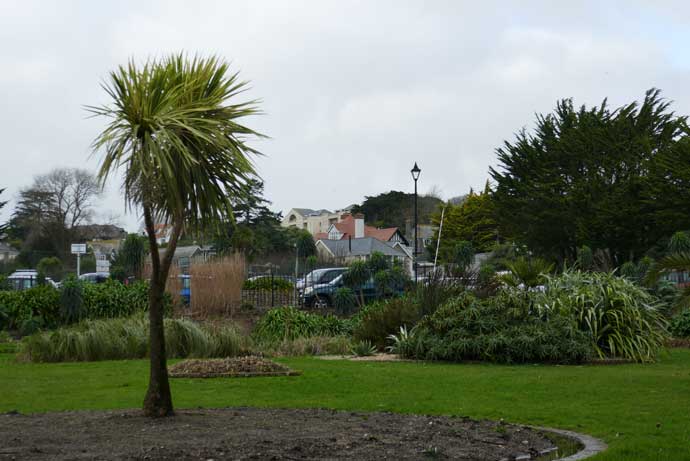Here’s another bus. “A monumental cinematic achievement.” Oh, wait. Not the bus but an ad for that film in which Gary Oldman gives us his Hamlet – no, sorry, his Churchill. He’s due an Oscar, anyway, and maybe this time, this role, et cetera. Lots of make-up. Seen clips; very convincing (although, never saw Churchill). If you read the critics I read, you’ll know it as the film with the made-up scene in it in which Churchill goes on the tube and everybody supports him. Really? There’s an F-word that’s generally applied to news, ending in -ake. What kind of history is this?
I’ll skip that one, I think, although I might see STREEP HANKS, as the poster seems to call it, although the film’s title is The Post. Katharine Graham wrote an autobiography (Personal History, Knopf, 1997), and if I could find my fat paperback copy, I’d quote from it. The film tells the story (I don’t know; should I say “a” story?) of The Pentagon Papers, which came before Watergate. “History never repeats itself, but it rhymes,” as Mark Twain perhaps didn’t say, and following on from the Nixon-era leaks, now we have the Wikileaks thing and The Panama Papers.
Not to mention the bus drivers holding us together. This is some wild kind of free verse, although it does “rhyme” in the sense that not only … Pentagon … Panama … but also a lot happened for the USA after Rosa Parks refused to give up her seat on that Montgomery bus in December 1955. Get a haiku out of that lot. I wonder if they’ll be making a film about The Panama Papers in however many years’ time.
If so, I wonder if my descendant(s) will go see the film just for the laptops and all the rest of the fondly remembered ancient “new technology” (and shots of the buses). I’m off to see STREEP HANKS to ogle the typewriters and the presses. Oh, and in the clip I saw, those leaked papers from the Pentagon were parcelled up in an actual, physical box. With string tied around it. Actual papers. Such nostalgia. I do so miss the days when writing, publishing, printing, doing anything actually, meant more than just “click here”.
Disasters bring out local people and local emergency services more quickly than they bring out central government; we learned that in 2017. In my neighbourhood, central government is all about cutting the finance for local health provision, backed up by ministers explaining that it’s more efficient for us to have to drive 100+ miles for cancer care. In my neighbourhood, local government is all about the welcoming, determined, resigned faces of the demonstrators on Pendennis Point. There’s a planning application to build flats on the headland next to the castle (built c1540), and although that’s been refused locally, all recent local refusals – all of them – have been overturned by central government. History's back yard this time. I imagine Henry VIII's guns covering apartment back-windows, and not the sea route into Falmouth Harbour.
Sorry, that’s just my bugbear. Mentioned it last week, didn’t I? It’s just that I don’t think government works on a national scale any more. It did when it was remote and we were all busy enough with our own lives, pre-technology**. But now our IT brings us face to face with the people in charge – except that it doesn’t, because they’re too far away to be part of the community. There’s an election here next week, local election, hard-fought I think. They’ve all come to the door, and it’s been different, talking about issues we all have in common rather than national TV-headline abstractions. Yes, yes, saving the NHS - what? The local hospital's at risk? Where's the demonstration?
Mind you, had somebody's Witnesses round the other day, too. The woman stood back, while the man wanted me to know what the Bible said about current events. That turned into an interesting exchange. Maybe it's just me.
*Remember Francis Fukuyama’s The End of History and the Last Man (Free Press, 1992)? Interesting book. Events are going to keep on happening, but “mankind’s ideological evolution” reaches its end-point with “Western liberal democracy”. There may be short-term blips, but in the long term, we’re all going to be small-d democrats. My question would be: on what scale? EU-sized democracies? National? Local? And what about fundamentalism, populism (can today’s manifestation really be a short-term one-off thing?), human nature? If we take it that the “Season One finale” was the fall of the Berlin Wall, there is no shortage of contenders for the opening event of the Second Season. And wow, has the world changed since 1992.
**It’s customary, at times like this, to point out that Jane Austen never concerned herself with the Napoleonic Wars. Imagine Emma Woodhouse’s Facebook account. To make a slightly different point, I would suggest John Irving’s A Prayer for Owen Meany (William Morrow, 1989). Early on, the narrator, John Wheelright, gives us his views on Reagan and the Contras – remember them? - which tells us something about John Wheelright and also about the transience of politics. Good book.

